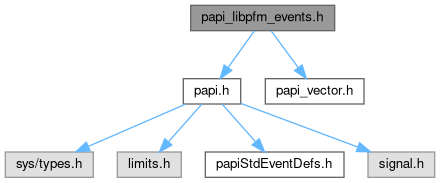

Go to the source code of this file.
Data Structures | |
| struct | perf_event_attr |
Macros | |
| #define | PERF_TYPE_RAW 4; |
Macro Definition Documentation
◆ PERF_TYPE_RAW
| #define PERF_TYPE_RAW 4; |
Definition at line 47 of file papi_libpfm_events.h.
Function Documentation
◆ _papi_libpfm_error()
Definition at line 149 of file papi_libpfm3_events.c.

◆ _papi_libpfm_init()
| int _papi_libpfm_init | ( | papi_vector_t * | my_vector, |
| int | cidx | ||
| ) |
Definition at line 442 of file papi_libpfm3_events.c.


◆ _papi_libpfm_ntv_code_to_bits()
| int _papi_libpfm_ntv_code_to_bits | ( | unsigned int | EventCode, |
| hwd_register_t * | bits | ||
| ) |
Definition at line 416 of file papi_libpfm3_events.c.


◆ _papi_libpfm_ntv_code_to_bits_perfctr()
| int _papi_libpfm_ntv_code_to_bits_perfctr | ( | unsigned int | EventCode, |
| hwd_register_t * | bits | ||
| ) |
Definition at line 1015 of file perfctr-x86.c.


◆ _papi_libpfm_ntv_code_to_descr()
Definition at line 262 of file papi_libpfm3_events.c.
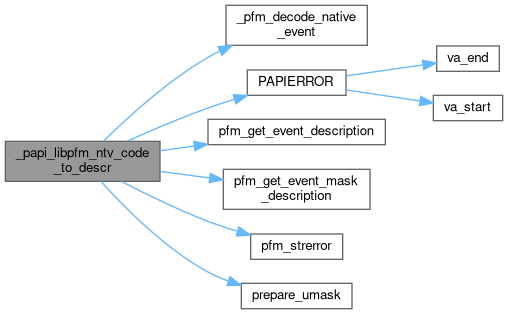

◆ _papi_libpfm_ntv_code_to_info()
| int _papi_libpfm_ntv_code_to_info | ( | unsigned int | EventCode, |
| PAPI_event_info_t * | info | ||
| ) |
Definition at line 344 of file papi_libpfm3_events.c.
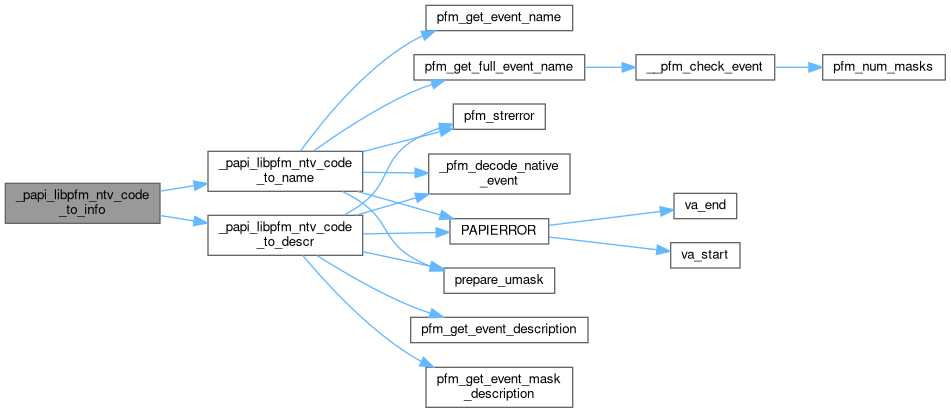
◆ _papi_libpfm_ntv_code_to_name()
Definition at line 225 of file papi_libpfm3_events.c.
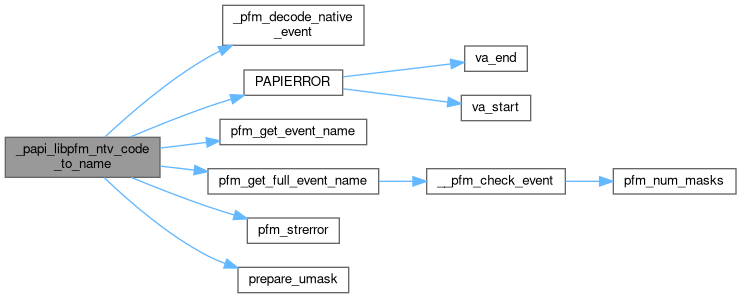

◆ _papi_libpfm_ntv_enum_events()
Definition at line 360 of file papi_libpfm3_events.c.
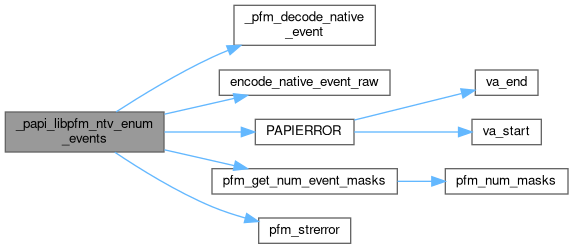
◆ _papi_libpfm_ntv_name_to_code()
Definition at line 184 of file papi_libpfm3_events.c.
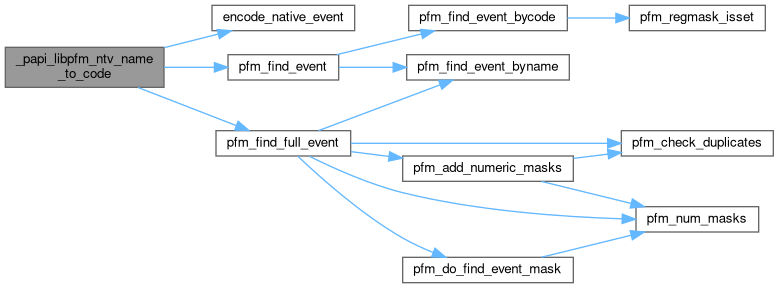
◆ _papi_libpfm_setup_counters()
| int _papi_libpfm_setup_counters | ( | struct perf_event_attr * | attr, |
| hwd_register_t * | ni_bits | ||
| ) |
Definition at line 770 of file papi_libpfm3_events.c.

◆ _papi_libpfm_setup_presets()
◆ _papi_libpfm_shutdown()
| int _papi_libpfm_shutdown | ( | void | ) |
Definition at line 833 of file papi_libpfm3_events.c.
◆ _pfm_convert_umask()
Definition at line 137 of file papi_libpfm3_events.c.


◆ _pfm_decode_native_event()
Definition at line 79 of file papi_libpfm3_events.c.
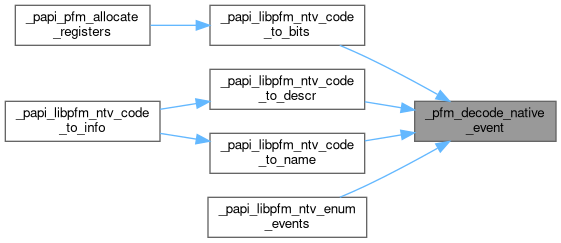
◆ prepare_umask()
Definition at line 99 of file papi_libpfm3_events.c.
